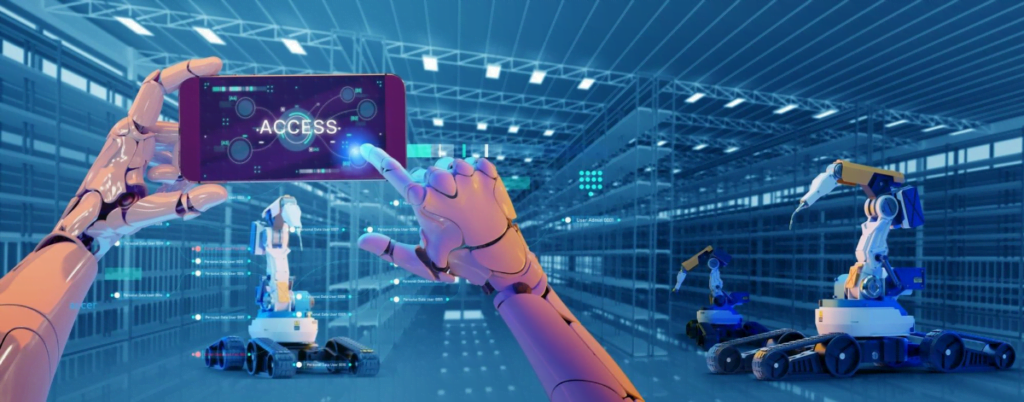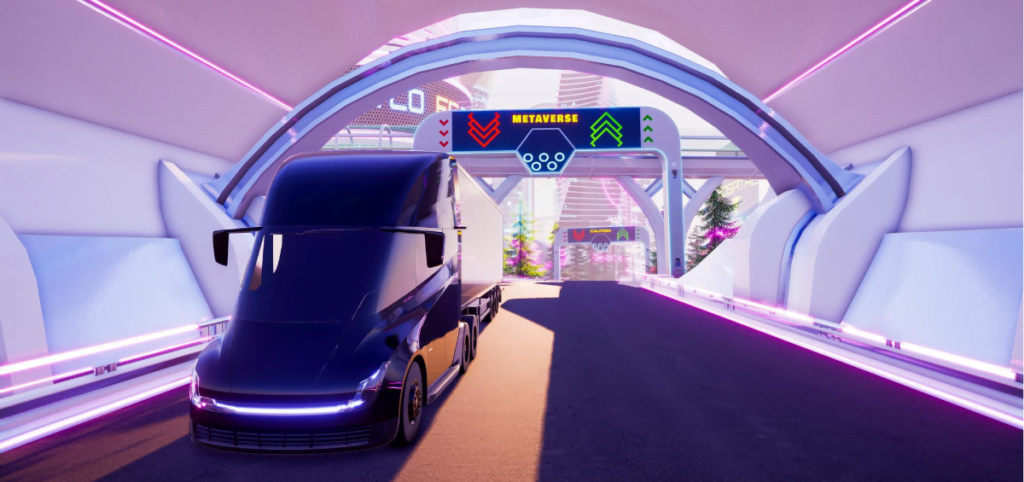The industrial metaverse is the next step in the evolution of virtual reality, and it has the potential to revolutionize how we interact with our physical world. It combines augmented reality with a shared online environment that can be used for business and industry applications.
More importantly, its focus on productivity rather than entertainment will allow us to explore entirely new ways of working together as well as creating innovative products or services.
While much of today’s attention is rightly focused on consumer-driven metaverses such as video games and social media platforms, the industrial metaverse promises to far exceed these offerings in terms of functionality and economic value. With its ability to drive efficiency while enabling creativity at scale, it has the potential to become one of the most important backbones of our economies in years to come.
What is the industrial metaverse?
The industrial metaverse refers to the use of virtual and augmented reality technology in industrial settings, such as manufacturing, construction, and maintenance. This technology can be used for training employees, visualizing designs and simulations, and remotely collaborating on projects. The goal of the industrial metaverse is to improve efficiency, reduce costs, and increase safety in these industries.
Training
With technologies like Augmented Reality (AR), Virtual Reality (VR) and 3D, training in the metaverse offers a unique and interactive experience that can help employees learn faster and excel in their workplace.
From immersive simulations to virtual classrooms, companies are leveraging these technologies to provide engaging, effective learning experiences for their workforce. By creating an environment where users can interact with each other as well as digital objects in real time, they have access to powerful tools that facilitate collaboration and creativity while also providing valuable feedback on performance.
With this technology at hand, organizations of all sizes can easily design custom training programs tailored to meet the specific needs of their teams without having to invest heavily in physical infrastructure or personnel resources. The future of corporate training lies within the metaverse – come join us!

Manufacturing
The Metaverse is poised to revolutionize the way we manufacture and develop products. Through simulation ahead of physical development, companies can identify improvements in their designs faster than ever before.
Furthermore, with virtual collaboration tools, employees from all around the world can work together on a single design without having to be in the same room.The metaverse has opened up a new realm of possibility for manufacturing.
Construction
The metaverse will forever change the way we plan, design, and construct buildings and infrastructure. With virtual and augmented reality, architects and engineers can easily create digital models of structures before they are even built.
This will allow for more accurate planning and designs, as well as the ability to tweak designs in real time without having to tear down a building or start from scratch. Additionally, this technology could lead to faster construction times due to fewer mistakes onsite caused by inaccurate plans or measurements.
The potential applications of this technology are seemingly limitless – from designing smarter cities with better traffic flow patterns to constructing custom homes quickly – making it an invaluable tool for shaping the future of construction.

Logistics
The metaverse will impact the way logistics are managed in the modern world. By leveraging digital technologies and virtual simulations, companies can map out their end-to-end supply chain network to identify opportunities for improvement. This allows them to design and test efficient and effective logistic facilities that maximize efficiency while minimizing costs.
Additionally, it enables organizations to gain greater visibility into their operations – from production processes all the way through distribution – so they can make informed decisions about how best to allocate resources.
With these capabilities, businesses can stay ahead of the competition by proactively anticipating customer needs and responding with agility. In short, logistics in the industrial metaverse will open new possibilities for companies looking to gain a competitive advantage in today’s ever-evolving market landscape.
Author

Immersive tech enthusiast, diving into the NFT currents reshaping the Metaverse.




